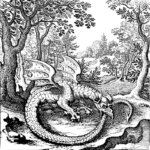
In today’s complex world, trust and truth are more elusive than ever, prompting many to question authority and seek alternative explanations. This has led to a surge in belief in conspiracy theories, as people attempt to make sense of events that seem too chaotic or hidden. But why do individuals gravitate toward these theories, and should they trust experts or scrutinize evidence themselves?
One reason for the allure of conspiracy theories lies in cognitive biases and emotional needs. Humans often seek control and meaning, which conspiracies provide by explaining events through secretive, powerful forces. This belief can offer comfort, painting a world where everything is interconnected, rather than random. Additionally, distrust in institutions and the complexity of modern issues contribute to this trend, making it easier for people to question official narratives.
Trust plays a dual role here. While experts provide valuable insights, blind trust can be problematic. It’s unrealistic to expect everyone to be experts in every field, so trust serves as a necessary shortcut. However, it’s crucial to assess when and whom to trust. Critical thinking is essential—asking questions, evaluating sources, and seeking evidence—while recognizing the limits of our knowledge helps us strike a balance between skepticism and trust.
Ultimately, the key is informed trust combined with critical thinking. We should engage with expertise thoughtfully, questioning when necessary. In this information age, discerning truth requires both trust in credible sources and personal scrutiny. By fostering this balance, we navigate the complex landscape of information more effectively, making informed decisions that reflect both our critical faculties and the value of expert knowledge.








No Comments